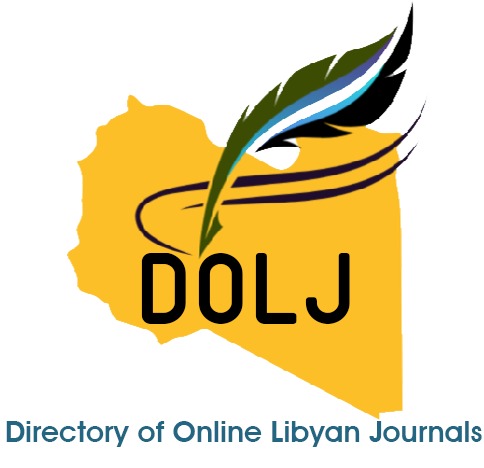Organizational politicization among University of Benghazi employees: A case study of employees of the Faculty of Economics in Benghazi
DOI:
https://doi.org/10.61952/jlabw.v1i3.121Keywords:
University of Benghazi, organizational politicizationAbstract
This study aimed to identify the level of organizational politicization among the employees of the University of Benghazi in the city of Benghazi, through examining its dimensions: general politicized behavior, present submission for future advancement, and politicization of raises and rewards. The study adopted a descriptive methodology and included a sample of 90 employees selected using a simple random sampling method. However, the prevailing circumstances limited access to all members of the original population.
The findings revealed the following:
- The dimension of general politicized behavior was rated at a high level.
- The dimension of present submission for future advancement was rated at a high level.
- The dimension of politicization of raises and rewards was rated at a high level.
Based on these results, the study recommended the following:
- Paying attention to employees and fostering trust among them by promoting behavioral and ethical values to reduce frustration, isolation, and absenteeism.
- Increasing focus on employees by identifying their needs and levels of motivation, while enhancing incentives, promotions, and rewards to strengthen trust in the organization.
Adhering to job descriptions and developing organizational procedures to minimize conflicts and disturbances, and to reduce harmful behaviors and practices
References
البطحي، س. ب. ح. (2022). العلاقة بين التسييس التنظيمي والإحباط الوظيفي. متاح عبر: https://albuthi.com
البياتي، ب. غ. ح. الجرجري. (2017). التسييس التنظيمي ودوره في استحضار القدرات التنظيمية. مجلة تكريت للعلوم الإدارية والاقتصادية، 4(40)، 49.
السعيدي، ص. س. (2019). دور القيادة التشاركية في تقليل التسييس التنظيمي: بحث تحليلي في جامعة كربلاء. Scientific Journal، 1(1)، 120–130.
العشري، م. ح. م. (2020). العلاقة بين التسييس التنظيمي والإحباط الوظيفي بالتطبيق على العاملين بالكادر العام بجامعة المنصورة. المجلة العلمية للدراسات والبحوث المالية والإدارية، 2(7)، 183–212.
الفتلاوي، م. ه. ع.، & محيسن، ح. ص. (2018). تأثير التسييس التنظيمي في السلوك الاستباقي. المجلة العراقية للعلوم الإدارية، 14(57)، 122–150.
الكعبي، ح. ص. م. (2018). تأثير التسييس التنظيمي على السلوك الاستباقي من خلال الدور الوسيط للعلاقات الاجتماعية: دراسة تحليلية لآراء عينة من موظفي معمل الإسمنت كربلاء [رسالة ماجستير غير منشورة]. جامعة كربلاء.
المنسي، م. ع. (2021). توسط الصمت التنظيمي في العلاقة بين إدراك التسييس التنظيمي والاحتراق الوظيفي: دراسة تطبيقية على العاملين في مديريات الخدمات بمحافظة الدقهلية. مجلة جامعة الإسكندرية للعلوم الإدارية، 1(58)، 253–295.
شريم، م. ب. س. (2016). تسييس الوظيفة العامة وأثره في مأساة الجهاز الإداري الفلسطيني [رسالة ماجستير غير منشورة]. جامعة النجاح الوطنية، فلسطين.
عبد القادر، ع. أ.، وآخرون. (2020). أثر التسييس التنظيمي على سلوك المواطنة التنظيمية: دراسة تطبيقية على العاملين بالمراكز المحلية بمحافظة كفر الشيخ. مجلة الدراسات التجارية المعاصرة، 6(9)، 855–882.
نور الدين، أ. م. ع.، & العنزي، م. ع. (د.ت). النبذ في مكان العمل كمتغير وسيط في العلاقة بين التسييس التنظيمي وسلوكيات العمل المضادة للإنتاجية: دراسة تطبيقية على العاملين بوحدات الحكم المحلي بمحافظة المنوفية. مجلة التجارة والتمويل. جامعة طنطا.
Byrne, Z. S. (2005). Fairness reduces the negative effects of organizational politics on turnover intentions, citizenship behavior and job performance. Journal of Business and Psychology, 20(2), 175–200.
Crawford, W. S., Lamarre, E., Kacmar, K. M., & Harris, K. J. (2019). Organizational politics and deviance: Exploring the role of political skill. Human Performance, 32(2), 92–106. https://doi.org/10.1080/08959285.2019.1597100
Landells, E. M., & Albrecht, S. L. (2019). Perceived organizational politics, engagement and stress: The mediating influence of meaningful work. Frontiers in Psychology, 10, 1612. https://doi.org/10.3389/fpsyg.2019.01612
Rashid, A. W. (2013). Organizational politics and employee outcomes. Journal of Business and Psychology, 20(2), 169–183.
Robb, C. A. (2011). Impact of leadership on organizational politics (Master’s thesis). Nelson Mandela Metropolitan University.








